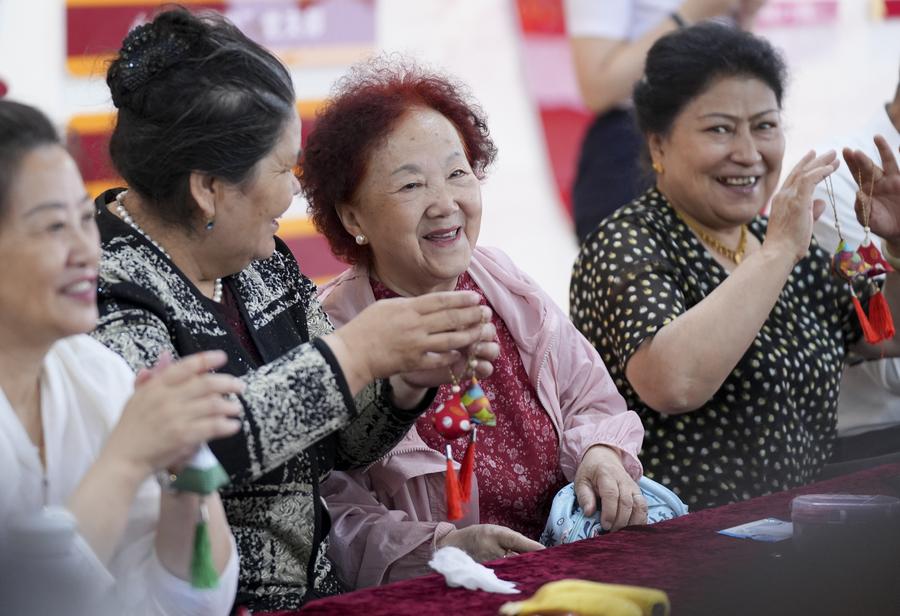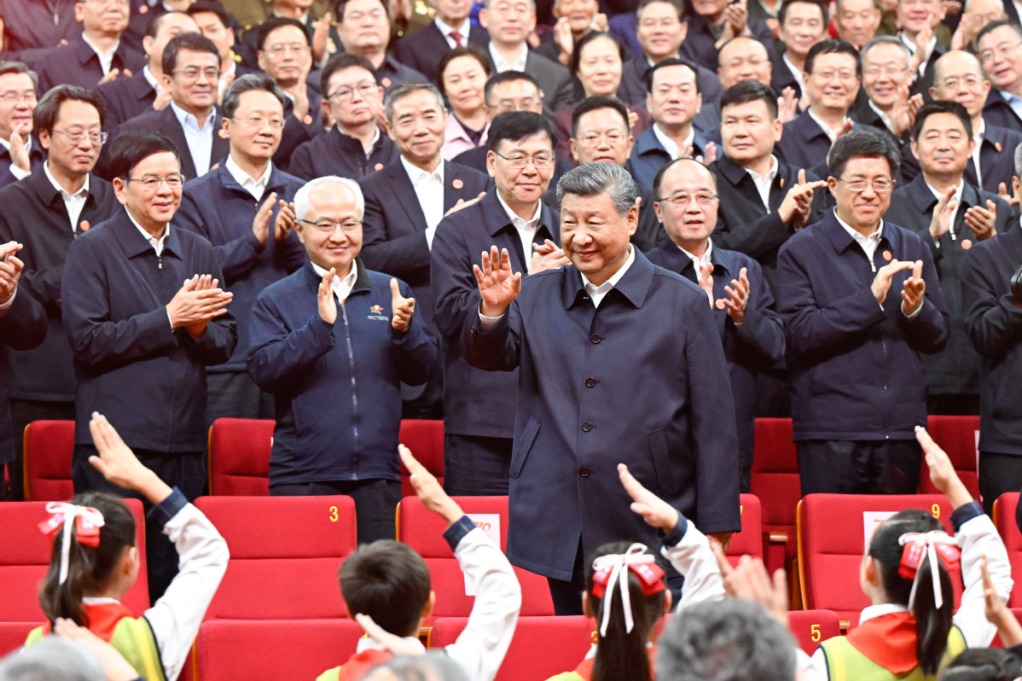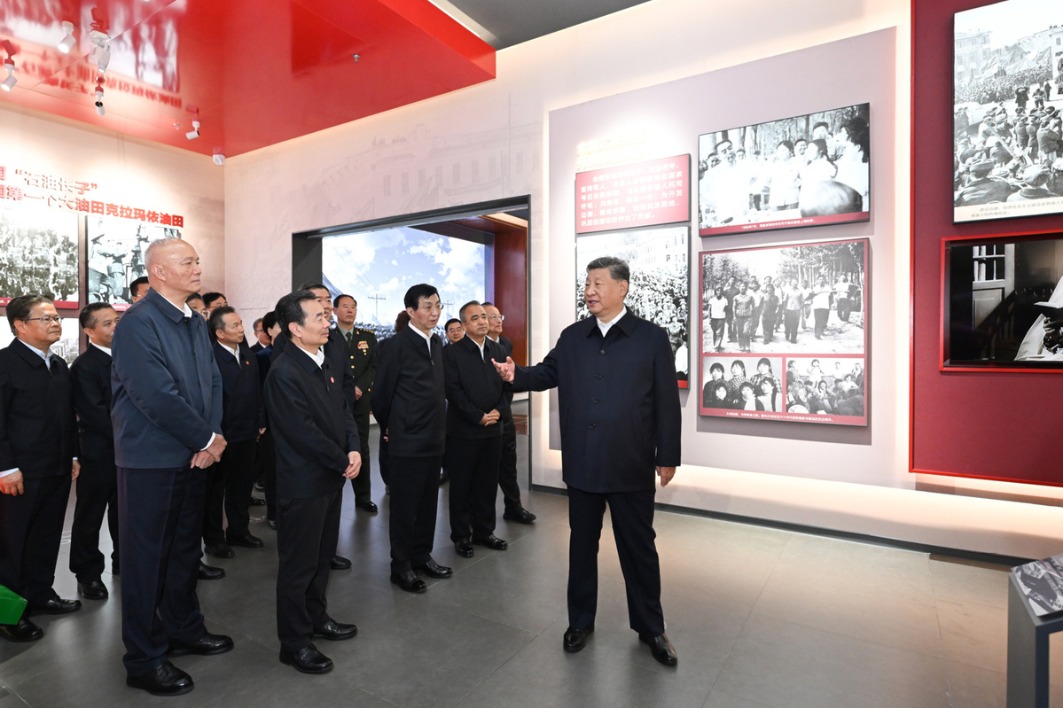A vital trade hub to connect central Asia


In the 70 years since the founding of the Xinjiang Uygur autonomous region, Xinjiang has become a champion of economic and human resources development.
Xinjiang's success lies in the fact that it has achieved extraordinary development in a multi-ethnic society. In this respect, it is the leading example in the world. According to reports and assessments by UN agencies such as the United Nations Development Programme, the UN Conference on Trade and Development, the Food and Agriculture Organization and the World Health Organization, Xinjiang's remarkable achievements in the past 70 years include the eradication of extreme poverty and significant improvement in public health, food security, literacy and life expectancy.
Once one of China's poorest regions, Xinjiang today is not only a poverty-free region but also a thriving local economy. UN and WHO health reviews highlight that average life expectancy in Xinjiang has increased dramatically, from 30 years in 1949 to 77 years in 2024, while the number of infectious disease cases has fallen sharply, maternal and infant mortality rates have declined, and basic health services cover all rural areas, including remote, mountainous areas and deserts.
In the 1950s, the majority of the members of ethnic groups were illiterate, but Xinjiang has now eradicated illiteracy among the young and middle-aged population, and boasts high numbers of universities and college students. The nine-year compulsory education law came into effect across the country, including in Xinjiang, in 1986.
Moreover, thanks to the China-proposed Belt and Road Initiative, one of the most extensive development initiative in human history, a brighter future awaits Xinjiang, because it plays a key role in the implementation of the initiative.
Xinjiang shares borders with eight countries, and serves as a strategic hub connecting China's production and consumer bases with Eurasia's resource sites and markets.
Xinjiang is the country's most important land bridge, extending to Central Asia, the Middle East and Europe, while major China-Europe freight trains pass through the region, making it one of the busiest land logistics corridors in the world.
Besides, the integration of Turkiye's "Middle Corridor" project with the BRI has shortened and secured the transport route between Europe and Asia, and after the "Development Road", developed jointly with Iraq and Turkiye, is completed and joins the BRI, an alternative channel to the congested Suez Canal will open.
The development of excellent highways, and modern oil and gas pipelines, and dry ports has turned Xinjiang into a multimodal logistics hub. The region hosts customs zones and cross-border economic cooperation zones, which facilitate customs procedures for the goods transported between China and Central Asia. And due to digital customs and joint inspection mechanisms in Khorgos and Alashankou in Xinjiang, customs clearance time for China-Europe cargo has been reduced from days to hours.
Xinjiang's status as an important ancient Silk Road corridor has helped it build deep cultural ties with Central Asia, the Middle East, and beyond. The location and cultural bond make the Belt and Road corridors over land not only economically viable but also culturally and socially valuable.
Xinjiang is a vital connector between Turkiye and China. Strengthening cooperation in Xinjiang means deepening the partnership between our two nations.
The region's success is the success of socialism with Chinese characteristics. China's regional ethnic autonomy system protects and promotes ethnic minority rights and institutions, and helps improve infrastructure and public services, as well as alleviate poverty. Since real progress cannot be achieved without the participation of the people, the autonomous region's government, with the help of the central government, has institutionalized public participation.
This unique institutionalization has laid a solid foundation for local representation, with laws protecting minority languages, religious practices, and ethnic traditions. In fact, ethnic languages are extensively used in local curricula, as well as by media and cultural institutions.
The efforts to institutionalize the participation of ethnic groups in politics across China have fostered social harmony. The best way to resolve ethnic issues is to win hearts and minds.
The author is Chairman of the China Business Development and Friendship Association (Turkish-Chinese Business Association). The views don't necessarily represent those of China Daily.
If you have a specific expertise, or would like to share your thought about our stories, then send us your writings at opinion@chinadaily.com.cn, and comment@chinadaily.com.cn.
































